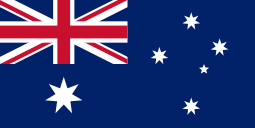ALL THE EUROVISION COUNTRIES: (52+?). Concludes with this post.
*Our Eurovision focus continues tomorrow.
Caffè ☕️Lattè looks back on:
ALL THE
EUROVISION
COUNTRIES
The Eurovision Song Contest was first held in 1956. Back then, only 7 countries participated. In the decades since, dozens of other nations have joined the ESC family. As Europe changed, countries faded into history as new countries and new names emerged. Eurovision itself has expanded beyond the European continent; to Africa, the Middle East and the Southern Hemisphere.
Our spotlight looks back on every country that has competed – in chronological order.

2015
The Eurovision Song Contest remained unchanged until 2015. Vienna was the host city following the triumph of Conchita Wurst and “Rise Like A Phoenix”. As a one-off mainly to mark the Contest's 60th anniversary, the Austrians invited Australia- where Eurovision has been popular for decades- to compete. The Australian entry was an automatic pre-qualifier for the Grand Final. This was to avoid the Aussie song restricting one of the regular participating countries’ entries from a spot in the Grand Final. In the event of Australia winning, the rules stipulated that another country would have to host the Contest on its behalf.
Sweden won the Contest and invited Australia back in 2016. The country was later granted a guaranteed period of participation in the Contest. This expired in 2023. No official announcement has since determined whether or not Australia is going to be a permanent addition to the ESC, but the country did compete in 2023 and will participate again this year. The addition of Australia has meant that the scope of Eurovision family members has extended far beyond the borders of Europe.
LII

AUSTRALIA
The most recent country to debut at Eurovision is Australia. Before its debut, the annual show was a popular TV event in the country. Some past competitors – like Gina G and Johnny Logan- were in Australia. Olivia Newton-John, who competed in 1974, grew up and began her career in the Australian city of Melbourne.
Beginning in 2015, Australia has fared well as a Eurovision participant. On three occasions, the country has won its semi-final. Inaugural entry "Tonight Again" resulted in a Top 5 place. The following year, Dami Im finished as the runner-up with “Sound Of Silence” in Stockholm. This remains the best result for any of the previous nine entries. In 2024, Australia will be competing in Semi-Final 1 with “One Milkali (One Blood)”, performed by Electric Fields. This will be its tenth participation.
THE FUTURE
As well as the possible return of locations such as Monaco, Turkey, Hungary and Montenegro, there could be a reversal of the disqualification of Russia should the conflict in the Ukraine cease. Recently, Israel’s 2 proposed entries for the Contest have been disqualified and the nation may be withdrawing this year.
There are at least three countries that are likely new additions to the Eurovision Song Contest in the near future: Liechtenstein, Kosovo and Kazakhstan. The main obstacle for the three remains the requirement of EBU (European Broadcasting Union) membership.
Beginning in 2023, viewers in selected countries that do not compete in the Eurovision Song Contest, were permitted to vote as one distinct group, dubbed "Rest of the World". In last year's event, this group awarded its 12 points to Albania.

No comments:
Post a Comment